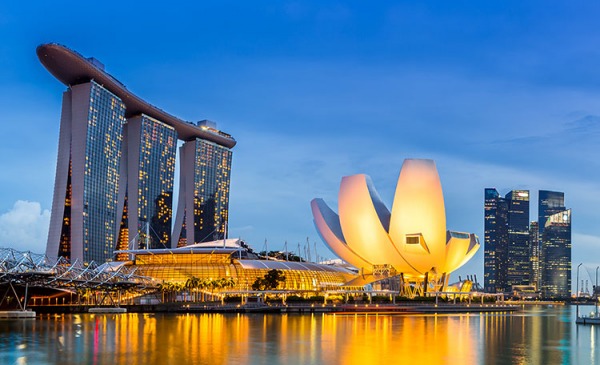Warnings & Dangers in Singapore

OVERALL RISK : LOW
Singapore is one of the safest countries in the world. They strictly adhere to the rules and follow the laws. Check local laws before you travel here, as many of your usual activities may be illegal.

TRANSPORT & TAXIS RISK : LOW
Public transport is well developed, runs on schedule, and is safe. You can also use any licensed taxi service. It is entirely safe and reliable.

PICKPOCKETS RISK : MEDIUM
Usually, there are not many pickpockets but can be found in tourist and bazaars. The usual common sense and mindfulness will be enough to avoid these problems.

NATURAL DISASTERS RISK : LOW
Singapore is virtually immune to natural disasters. Its proximity to the Equator shields it from typhoons, and nearby landmasses protect it from tsunamis. Floods due to heavy rains are sometimes possible, but usually, they are not continuous.

MUGGING RISK : LOW
Armed severe attacks and abductions in Singapore usually do not occur. In this regard, the country is very safe. The punishments are very harsh, so there is very little crime here.

TERRORISM RISK : LOW
There have been no recent terrorist attacks in the recent history of Singapore, but they cannot be ruled out, so always watch your surroundings. Avoid political and religious demonstrations and large gatherings of people.

SCAMS RISK : LOW
Usually, there are not many scammers in Singapore. However, as in any tourist-attractive country, they sometimes hunt here. Most often, scammers try to offer you housing or travel services, take the money and disappear. Keeping your usual common sense, you will avoid scammers.

WOMEN TRAVELERS RISK : LOW
Women traveling alone can feel quite at ease in Singapore. Even at night, you can go by the streets of the city without fear. Of course, in any case, common sense should be maintained.
How Safe Is Singapore for Tourists?
Singapore is a very safe city.
It is one of the safest cities to travel to.
The crime rate is meager, and regulation and police presence are high.
Most people, including single travelers, will not encounter any problems walking alone in the streets of Singapore at night.
Of course, minor problems like pickpockets are also encountered here.
Therefore, you need to monitor your things, as well as the environment.
Singapore’s cleanliness is achieved in part due to strict rules against public actions, which are often ignored in many other countries.
In Singapore, hefty fines, if you litter on the streets, remember this during your trip.
You can cross the road strictly at pedestrian crossings; otherwise, a hefty fine will await you.
Although Singapore provides a constitutional right to “freedom of expression,” there are many exceptions that restrict this right, including several exceptions related to political activity and public demonstrations (especially non-citizens).
Singapore is virtually immune to natural disasters.
Its proximity to the Equator shields it from typhoons, and nearby landmasses protect it from tsunamis.
Flooding in the November-January monsoon season is an occasional hazard, especially in low-lying parts of the East Coast, but any water usually drains off quickly, usually after a couple of hours, and life continues as normal.
Do I Need a Visa to Visit Singapore?
A citizen of one of the visa waiver eligible countries and territories can temporarily enter the country for a period of 30 days or 90 days without a visa depending on their nationality; however, some visitors must first obtain a visa in advance before being allowed to enter Singapore if they wish to stay for a longer period of time. A valid passport is a must.
Which Currency Is Used in Singapore?
The Singapore dollar is the official currency of Singapore. It is divided into 100 cents. It is usually abbreviated with the dollar sign $, or S$ to distinguish it from other dollar-denominated currencies.
How's the Weather like in Singapore?
The best time to go to Singapore is between February and April. Although Singapore is—for the most part—a year-round destination, the months of February to April fall within Singapore’s dry season and experience less rainfall than other times of the year.
What Do I Need to Know about Airports in Singapore?
There are two airports in Singapore – the Changi International Airport and Seletar Airport. Singapore Changi Airport, commonly known as Changi Airport is a major civilian airport that serves Singapore and is one of the largest transportation hubs in Asia.
Should I Get Travel Insurance for My Travels?
Just like anywhere else, the travel insurance policy is a must when visiting a foreign country. Make sure you got it before starting your journey, the customs officer may ask for it.
What Are Some Things to Do in Singapore?
Singapore is a multinational city-state, a global financial center. It is located on an island and borders on southern Malaysia. The heart of the colonial city center is the Padang Cricket Field, created in the 1830s. It is surrounded by magnificent buildings, including the city hall with 18 Corinthian columns. In Chinatown, which arose around 1820, there is the Temple of the Sacred Tooth Relic, where it is believed that one of the teeth of the founder of Buddhism is stored.
Is the Water in Singapore Safe to Drink?
Singapore’s tap water quality is well within the Singapore Environmental Public Health. Tap water is ok for drinking.
Is Uber Safe in Singapore?
There is an Uber taxi in Singapore. You can call it from the application on your smartphone. The price of the trip will depend on the distance and time of day.
